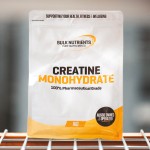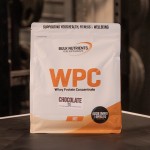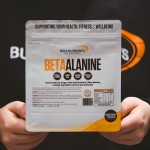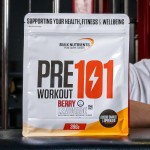Essential Supplements for High Performing Athletes

Enhance your performance with nutritional supplements
One category of performance-enhancing strategies is of course nutritional supplements. There has been substantial interest in supplements due to their mixed outcomes in improving performance, well-being, and overall physiological health.
Are supplements necessary for everyone? Absolutely not. However, athletes at the top of their competition, put their bodies under intense stress that is not encountered in day-to-day living, and small percentage improvements can affect their competitive outcome.
Thus, consuming whole foods alone may be inadequate for optimising performance in this population. I am going to discuss the situations and the type of athletes that may warrant the use of nutritional supplements, including what supplements I typically advise, and the justification for use.
I will caveat this piece by saying this information is targeted towards athletes competing at a high level. Sure, for recreational trainers and lifters, there might be little downside to adopting this supplement advice, however, these supplements are also unlikely to make a measurable difference in your outcome of interest if that outcome is improving aesthetic appearance.
To say it otherwise, the 1-5% edge that supplements provide can make a noticeable, measurable difference in a 100 metre sprint when placings are separated by milliseconds, yet they are unlikely to yield measurable impact when evaluating your physique in the mirror.
With that said, for recreational trainees that are doing everything possible to squeeze out every ounce of progress, this information might be valuable to inform your supplement planning.
Reach your daily protein target with a protein supplement

Research suggests that an approximate intake of 2 grams of protein per kilogram of body weight is required to maximise training adaptations. For an athlete weighing 100 kilograms, this would equate to a daily protein target of 200 grams or the equivalent of approximately six chicken breasts.
For athletes with busy lifestyles and with high training volumes, it may not be feasible to reach their protein requirements using whole foods alone. In that case, I recommend whey protein (WPI or WPC), as a fast-digesting protein source, with one of the highest profiles of essential amino acids (including leucine which is an important trigger for muscle protein synthesis) out of all protein-rich foods.
Using whey protein as a means to reach a high protein intake can often result in improved muscle and strength progression when the previous protein intake was below ~2 grams per kilogram of body weight.
Casein is also another great protein supplement option, digesting very slowly and gradually releasing amino acids into the bloodstream across many hours. This makes casein a standout choice for a pre sleep protein, keeping relatively stable high levels of amino acids in the blood while you’re not eating for 6 – 10 hours, reducing the risk of catabolism.
Whey and casein supplements present high quality, cost-effective and convenient protein options that can facilitate an optimal protein intake to maximise training results.
Push past exhaustion with a Creatine Nitrate supplement
Nitrate is attainable via the ingestion of some vegetables, particularly beetroot and rocket, or in supplement form (e.g., beetroot “Beet-it shots; creatine nitrate). Nitrate is a governor of blood flow and vasodilation via its by-product nitric oxide.
Nitrate seems to increase exercise performance by reducing the oxygen cost of exercise and delaying time to exhaustion. Unfortunately for weightlifters, there does not appear to be a clear benefit on power or strength output, however, nitrate can improve endurance capacity in exercise efforts lasting 1-10 minutes.
Nitrate supplementation thus has more value for those competing in anaerobic cardiovascular events or muscular endurance efforts. The recommended dose of nitrate in supplement form to optimise the aforementioned performance benefits is 6.5 – 13 mg per kilogram of body weight, however, intake of nitrates is also possible – although far more challenging - via beetroot or leafy vegetable ingestion.
Interestingly, acute supplementation (1.5-3 hours before exercise) and chronic supplementation (~ 7 days) have both exhibited performance benefits in controlled scientific studies.
Get more out of every workout with Creatine Monohydrate

Creatine is one of the most favoured supplements among athletes, supported by years of well-controlled scientific research.
Creatine is stored in our muscles in the form of phosphocreatine, which is a creatine molecule and a phosphate molecule bound together. When this molecule is broken apart (known as hydrolysis), it releases a small package of energy. This energy is then used to combine something called adenosine triphosphate (ATP), which is the energy source for high-intensity exercise performance.
Storing more phosphocreatine in our muscles creates more potential for ATP production, especially during maximal or near-maximal effort exercise.
Research has consistently shown that supplementing with creatine monohydrate (increasing our muscle phosphocreatine content) can improve exercise performance, as well as improve the adaptations from our training.
Other research suggests that creatine can advance post-training recovery, reduce injuries, help to manage core temperature levels, and even protect the nervous system during head trauma.
Creatine supplementation may also allow an athlete to do more work over several weight training sets. Improving the volume and quality of training work over a series of sets may lead to enhanced gains in strength, muscle and performance. After a period of creatine supplementation, high-intensity and repeat-exercise performance can increase by up to 10-20%.
For a more comprehensive explanation of creatine, please read my previous Bulk Nutrients review.
Get energised to train hard with caffeine

Caffeine is a formidable supplement to augment physical and mental performance. Unlike chronically loaded supplements like beta alanine and creatine, a single dose of caffeine has the ability to increase mental concentration and attention, muscle contraction strength, endurance performance, fatty acid oxidation, while lessening the perception of fatigue, and sparing muscle glycogen.
Regarding dosing, 3 - 6 mg per kilogram of body weight is recommended around 60 minutes before training or competition. Still, in some cases, 6 - 9 mg per kilogram of body weight can be consumed with positive results.
However, it is advised to refrain from these doses outside of important training sessions or competitions. As a final note, it is recommended to assess tolerance with lower doses initially to measure possible side effects such as anxiety, sleeplessness, light-headedness, irritability, and stomach distress.
A great way to get a caffeine boost before training is with our Pre Workout 101.
Step up your stamina with Beta Alanine

Beta alanine is a modified version of the amino acid alanine and is used as a performance supplement predominantly because of its associations with increased muscle endurance. Supplementing with beta alanine every day for 4 - 8 weeks has been connected with improved performance in exercise efforts lasting 1 - 6 minutes.
Researchers have also described trainees being able to achieve one or two additional repetitions in the gym (following beta alanine supplementation for at least 7 days) when training in a range of 8-20 reps, closer to the endurance end of the repetition range.
Supplementing with beta alanine may develop the improved buffering capacity of metabolic waste products (e.g., hydrogen ions produced during fatiguing exercise) and therefore delay the onset of fatigue during performance.
Regarding dosing protocols for improving exercise performance, 2 - 5 g of beta alanine each day for 2 - 8 weeks is effective. It is important to note that beta alanine must be taken for at least 7 consecutive days to yield benefits, which is surprising bearing in mind the abundance of beta alanine blends labelled as “pre workout” supplements. Using these supplements as a “pre workout” is likely useless for improving endurance capacity.
One notable side effect (and possibly the most well-known characteristic) of beta alanine is slight paraesthesia - a tingling in the skin of the face and arms – however, this is safe and can also be avoided by doing split doses across the day. Some athletes actually report an increase in mental focus and training motivation due to the paraesthesia!
I have recently discussed in more depth the utility of beta alanine for endurance performance in this blog.
Supplements are a great tool to supercharge your performance and results
I hope this provided some value and can inform your decision-making process concerning choosing the supplements that will benefit you most. Train HARD and supplement SMART!

Jackson Peos has completed a PhD at the University of Western Australia, and has a straightforward approach to nutrition and supplements.
He's completed his BSc in Sports Science, and Exercise & Health, and his BSc (Hons) in Exercise Physiology.
More about Jackson PeosRelated Blogs

A Complete Guide on How to Grow Bigger Forearms
Posted by Dayne Hudson
Estimated reading time: 10 minutes

SportsFuel 101 Endurance Sports Nutrition
Posted by Nicole Frain
Estimated reading time: 8 minutes































